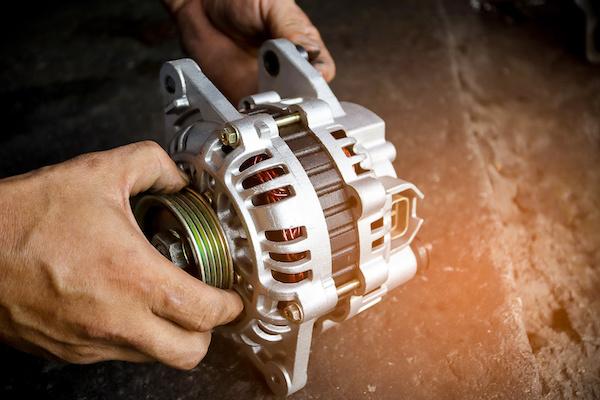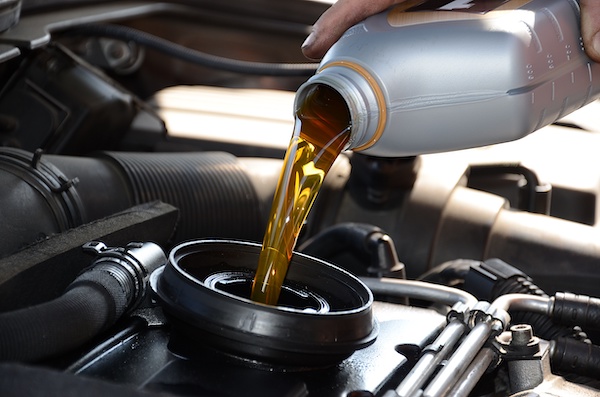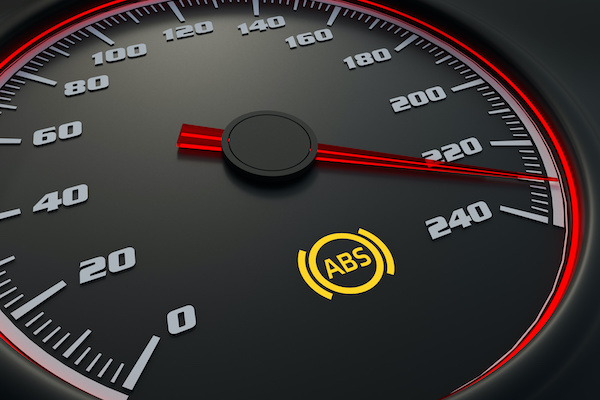Posted on 11/29/2021

San Francisco is remarkable and known for many things: the Golden Gate Bridge, cable cars, and its curvy, steep, rolling hills. In fact, the city has the second-most hills in the world! As you can probably imagine, driving and parking in San Fran can be a challenge within itself. Today, we will refresh your knowledge on how to park on uphills and downhills properly. How to Park Uphill Parking on a hill may look intimidating, but it's an everyday activity for the locals of San Francisco, CA. When you need to park uphill against a curb, please remember to turn your wheels away from the curb and let your automobile roll back until it gently grazes the curb. Doing this will help prevent the vehicle from rolling forward or backward. Last but not least, you can't forget to set the parking brake. How to Park Downhill If you intend to park on a downhill slope, remember to turn your wheels toward the curb or right shoulder. This will help prevent the vehicle from gliding towar ... read more
Posted on 10/28/2021
.jpeg)
An automotive oxygen sensor, or O2 sensor, detects the presence of oxygen in your exhaust gases. They can be found in modern cars, trucks, and motorcycles. Its role is to maximize combustion engine efficiency and emission control. Once the sensor reads the amount of oxygen present, it can determine the appropriate amount of fuel to be delivered to the cylinders. The O2 sensor prevents the so-called knocking from occurring, which can happen when an engine misfires or combusts too soon before it has finished burning both air and fuel. You can find the oxygen sensors in the exhaust to monitor combustion efficiency in an engine. It can restore some of the air that burned during the combustion process with high-temperature oxygen gas. The sensor uses a heated filament wire or platinum wire as its heat source and emits a low-current electrical current in response to changes in temperature. What Are the Signs of a Failing Oxygen Sensor? Driving with a malfunc ... read more
Posted on 9/28/2021

With September coming to a close, Halloween is right around the corner! There are plenty of fun (and spooky) activities you can do with anyone. Whether you are looking to party or for some family-friendly events, there's plenty to choose from. We've compiled a brief list of events in the San Francisco area to help you plan out your fun. 21+ Halloween Parties Titanic Masquerade Halloween Party Cruise - October 29, 2021, at 8:45pm At Pier 3 This 3-hour cruise includes two-party and dance areas, music by two local DJs. It is a masquerade party, so put on your party costume and a mask! Crawloween: Halloween Pub Crawl - October 30, 2021, at 2pm to 10 pm on Polk Street Early check-in begins at noon at Mayes on Polk Street. The Black Pearl Halloween Yacht Party on the San Francisco Spirit - October 30, 2021, at 9 pm to 1 am, starting at Pier 3 Ghost Tours Time Travel Segway Tour - October 1 - 31 at starting at 7:30 pm 757 Beach Street in Fisherman ... read more
Posted on 8/30/2021

When many people think about their vehicle's electrical system, they probably don't immediately think about their alternator. Their minds probably go to their battery. While your vehicle battery does give electrical flows to start your vehicle, the alternator is the primary part that keeps your battery charged and runs your electrical functions when your car is on. Without an alternator, your vehicle will abruptly break down all the time. What Is It? The alternator is a fundamental piece of your car because it converts engine power into electrical energy. The electrical energy works to keep your vehicle's electrical systems operating while continually charging the battery. It is named alternator because it generates an alternating current that changes direction periodically. Signs The alternator comprises many pieces such as bearings, rotors, and other internal parts. All the alternator parts can wear out over time, which means you're bound to ... read more
Posted on 7/28/2021

Congratulations, you are now a college student! For most of you, your car is the key to freedom and convenience while at college. Before you embark on this journey, you must drop by an auto repair shop and have your vehicle inspected and repaired to ensure it is safe and ready for college. Here is our essential maintenance checklist to guarantee that your car is in good shape for university. FLUIDS Your engine oil should be at the top of your priority of checking, as it ensures your engine is at optimal temperatures. Besides motor oil, there are several other fluids you should be mindful of too. It would be best if you had a trusted mechanic take a look at your vehicle's power steering fluid, brake fluid, transmission, coolant, windshield wiper fluids. TIRES Are your tires properly aligned? Are they at a safe pressure? Or are they at risk of hydroplaning or a hazardous blowout? During an inspection appointment, the technician will look for any signs of irregular ... read more
Posted on 6/28/2021
.jpeg)
The vehicle's cooling system comprises many parts that must function correctly and healthily to ensure high cooling performance. The radiator depends on the coolant or antifreeze, which is the liquid responsible for dissipating the heat produced by the engine to the atmosphere, thus preventing overheating. The cooling system is also part of the auto AC. Even so, it can develop issues that lead to engine and air conditioning issues. We've discussed some of the common causes of radiator and cooling system problems to help you troubleshoot your car: Radiator Leaks A common cause of a leaky cooling system is leaky pipes. The radiator can also leak, and that poses an even bigger problem. The coolant circulating in the system creates pressure build-up, which can stress the hoses, causing them to burst. As a result, the antifreeze oozes out, and that compromises its ability to cool the engine. If you notice a green puddle under the car that smells sweet, it's an indication of a ... read more
Posted on 5/27/2021

It can be difficult to say which services are recommended because they are necessary and which services are recommended solely to make money for the shop these days. Customers also inquire about fluid flushing services. And this is understandable. There are no indicators or reminders that it's time to flush the brake fluids. You won't see a reminder sticker on your windshield to change your transmission fluid. Fluid repair, on the other hand, is a vital aspect of ensuring that your car lasts a long time. What Is A Fluid Flush, And How Does It Work? An oil change is a fluid flush in technical terms. To help its components do their work, the car uses a variety of fluids. Dirt and other toxins accumulate in these vital fluids over time. This can reduce their effectiveness or even make them dangerous to your car. A fluid flush entails completely draining a certain form of fluid from your vehicle and replacing it with fresh, pristine fluid. Although various vehicles have diffe ... read more
Posted on 4/26/2021
.jpeg)
Drivers occasionally mention that they smell maple syrup when in or around their vehicle. If that is you and you have not been to a breakfast joint in the last day or so, treat the smell seriously. It could mean a problem with the coolant circulation system in your vehicle. Why That Matters Your vehicle's coolant circulation system helps regulate the temperature of your engine. It also plays a role with heating and defrosting your vehicle. If there is a problem and your coolant circulation system is not performing properly, you could end up with major engine damage. What the Problem Could Be The chances are good your issue is a pinhole leak in one of the hoses that make up your coolant circulation system. There are many hoses that make up the coolant system and depending on what hose is punctured, the fix can be simple or take a bit of time. The coolant can smell like maple syrup. Here are some other indicators of a coolant leak: A sticky film develops on your windshield aft ... read more
Posted on 3/18/2021
.jpeg)
The only purpose of hybrids or electric vehicles (EVs) is to save energy, specifically, fossil fuel energy. Both types of vehicles have different ways of doing this beyond relying on an electric component for power. One way that is not well known is regenerative brakes. Part of the Whole Regenerative braking systems work by capturing the energy that normally would be absorbed by brake pads and rotors and using it to fuel the energy loop that lets these vehicles perform as well as their fossil fuel-consuming cousins. Without it, hybrids and EV's would have to depend more on battery banks, which begin losing a charge as soon as they are activated. Regenerative braking creates a cycle by which a vehicle is operated, brakes and converts braking energy into usable energy for future operation. Traditional Brakes When a vehicle decelerates, the energy used to move forward transfers into the brake pads in the form of heat via friction. Not only does this energy conversion result in l ... read more
Posted on 2/19/2021

Vehicles give off warning signs to us all the time. While you may see them, often we don't know exactly what they mean. Our owner's manual may give us the answer to these signs and alarms, however, we don't often sift through the manual to figure it out. The ABS warning light may be one that you have no idea what it's indicating to you when it appears on your dashboard. The ABS, antilock braking system, is in place to make sure the wheels are all turning at about the same speed. If there is ever an occurrence of a slippery situation the ABS will utilize the brakes to keep the vehicle stable and under control. Anytime the computer senses an abnormal signal from any of the four sensors (one for each tire), the ABS warning light will come on so you're alerted. Whenever you see this light you know something needs your attention. Some things that can be happening when you see the ABS warning light other than monitoring wheel speed include a blown fuse and low brake fl ... read more